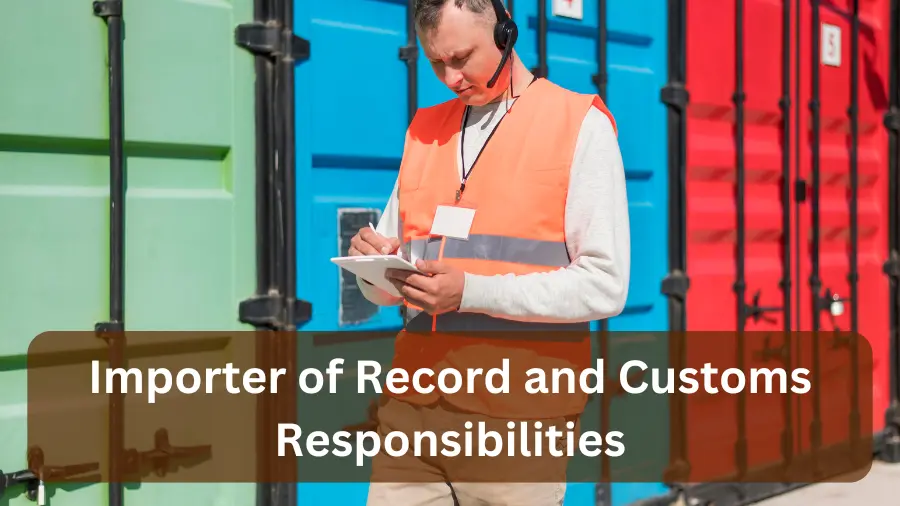The relationship between customs and the Importer of Record is essential for ensuring smooth international trade. Customs authorities enforce import regulations, while the IOR ensures compliance with those rules. The IOR plays a crucial role in facilitating timely, compliant imports by managing documentation, duties, and legal requirements. Without the IOR, businesses risk non-compliance, fines, and delays.
In this article, we’ll explore how this vital partnership ensures legal, efficient trade and protects your business from potential disruptions.
Importance of Compliance
The growing complexity of international trade means businesses must prioritize customs compliance to avoid delays, financial penalties, and reputational damage, including the potential loss of goods. The Importer of Record is pivotal in managing this process, ensuring all aspects of the import procedure—from documentation to duty payment—are executed accurately. By overseeing compliance, the IOR mitigates risk, facilitates smooth transactions, and ensures timely delivery, protecting businesses from potential disruptions and legal complications while meeting all regulatory requirements.
Role of the Importer of Record in Customs Compliance
The Importer of Record is the legally designated entity responsible for ensuring the compliance of imported goods with the destination country’s customs laws. Below, we break down the core responsibilities of the IOR when it comes to customs compliance:
1. Regulating Imports
Customs regulations govern the import of goods to ensure compliance with national laws, international agreements, and trade regulations. The IOR plays a critical role in ensuring that all goods entering a country adhere to these laws and are not subject to trade restrictions or prohibitions.
2. Collecting Duties and Taxes
One of the IOR’s key responsibilities is to ensure the proper assessment and payment of customs duties, taxes, and fees for imported goods. These payments are crucial for legal entry into the destination country and for maintaining good standing with customs authorities.
3. Enforcing Trade Laws
Customs enforces strict laws concerning restricted or prohibited items, including weapons, drugs, and counterfeit goods. The IOR ensures that no prohibited goods are brought into the country and helps ensure compliance with these critical trade laws.
4. Inspection and Clearance
Before goods can enter or leave a country, Customs authorities must undergo inspection to ensure they meet safety, security, and quality standards. The IOR is responsible for facilitating this process by ensuring that shipments comply with all necessary regulations and are cleared for entry or exit.
5. Documentation Control
The IOR is also responsible for ensuring that all required export and import documentation, such as invoices, bills of lading, and certificates of origin, are accurate and properly filed. This documentation is essential for proving compliance with customs laws and for avoiding any issues with customs authorities.
6. Combatting Fraud and Smuggling
Customs plays a vital role in preventing illegal activities, such as fraud, smuggling, and money laundering. The IOR helps by ensuring that all goods are legally imported and that no fraudulent activities, such as underreporting the value of goods or misdeclaring their contents, occur during the process.
Streamline Your International Trade with Expert IOR Services
Maximize your international growth while ensuring full compliance with our expert Importer of Record services. With our Compliance-focused import representation seamlessly managing customs regulations, documentation, and duty payments, you can concentrate on expanding your business. Trust our experienced team to guide you through every step of global trade, ensuring a smooth and secure process.
Ready to elevate your international presence? Fill out the form today and let us help you navigate the complexities of global markets with confidence.

